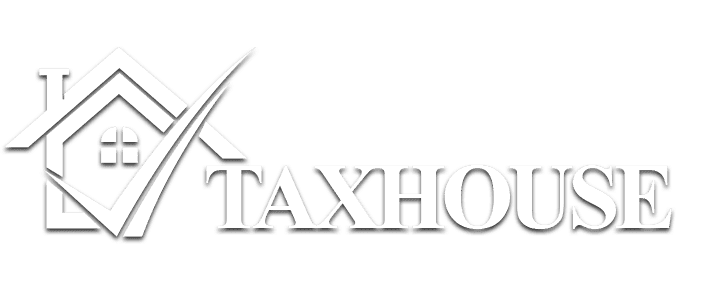Strategic Tax-Saving Techniques for NYC Real Estate Agents

Posted on June 4th, 2024.
Real estate agents in New York City face unique challenges when it comes to taxes. However, there are strategic techniques that can significantly reduce your tax burden, freeing up more of your hard-earned money for investment and growth.
In this article, we will explore various tax-saving strategies specifically tailored for NYC real estate agents.
Strategic Tax-Saving Techniques for NYC Real Estate Agents
Understanding Tax Deductions
As a real estate agent, you have access to a wide range of tax deductions that can help lower your taxable income. These deductions can include expenses related to your business, such as advertising, office supplies, and professional fees. Keeping detailed records and receipts is crucial to maximize these deductions.
Home Office Deduction
One of the most significant tax deductions available to real estate agents is the home office deduction. If you use part of your home exclusively for business, you can deduct a portion of your rent or mortgage interest, utilities, and insurance. The IRS offers a simplified method to calculate this deduction, making it easier for you to claim it.
Vehicle Expenses
Your car is likely one of your most important business tools. Whether you are showing properties, meeting with clients, or running errands, you can deduct vehicle expenses related to your business. You can choose between the standard mileage rate or actual expenses method. Each method has its pros and cons, so it's essential to choose the one that provides the greatest benefit.
Retirement Plan Contributions
Contributing to a retirement plan is not only a smart financial move for your future but also a powerful tax-saving strategy. There are several retirement plans available to self-employed individuals, including SEP IRAs, SIMPLE IRAs, and Solo 401(k)s. Contributions to these plans are tax-deductible, reducing your taxable income for the year.
SEP IRA
The Simplified Employee Pension (SEP) IRA allows you to contribute up to 25% of your net earnings from self-employment, with a maximum limit that adjusts annually for inflation. This plan is easy to set up and maintain, making it an attractive option for busy real estate agents.
Solo 401(k)
A Solo 401(k) plan offers higher contribution limits than a SEP IRA and includes both employee and employer contributions. This plan is ideal if you want to maximize your retirement savings while also taking advantage of significant tax deductions.
Health Insurance Premiums
As a self-employed real estate agent, you can deduct health insurance premiums for yourself, your spouse, and your dependents. This deduction is available even if you do not itemize your deductions. Ensuring you have proper health coverage while reducing your taxable income is a win-win scenario.
Depreciation of Property
If you own rental properties, depreciation can be a powerful tax-saving tool. Depreciation allows you to deduct the cost of the property over its useful life. This non-cash expense can significantly reduce your taxable rental income, providing substantial tax savings over time.
Bonus Depreciation
The Tax Cuts and Jobs Act introduced bonus depreciation, allowing you to immediately deduct a large portion of the cost of certain property in the year it is placed in service. This can provide immediate tax relief and is particularly beneficial for new property acquisitions or substantial improvements.
Utilize 1031 Exchanges
A 1031 exchange allows you to defer capital gains taxes when you sell an investment property and reinvest the proceeds in a similar property. This strategy can help you grow your real estate portfolio without being hindered by immediate tax liabilities.
Rules and Requirements
To qualify for a 1031 exchange, you must adhere to specific rules and timelines. For instance, you must identify potential replacement properties within 45 days of selling your original property and complete the exchange within 180 days. Working with a qualified intermediary is essential to ensure compliance with IRS regulations.
Professional Development and Education
Investing in your professional development can also provide tax benefits. The cost of attending industry conferences, workshops, and courses can be deducted as business expenses. This not only helps you stay ahead in the competitive real estate market but also reduces your taxable income.
Licensing and Certification
Expenses related to maintaining your real estate license and obtaining additional certifications are also deductible. This includes exam fees, renewal fees, and continuing education courses. Keeping abreast of industry changes and enhancing your skills can provide long-term career benefits and immediate tax savings.
We can help
Implementing these strategic tax-saving techniques can help NYC real estate agents significantly reduce their tax burden and retain more of their income for personal and professional growth.
At VV Taxhouse Inc, we specialize in providing tailored tax solutions for real estate professionals. Reach out to us at 646-406-9320 or [email protected] for personalized assistance and to learn more about our services and how we can help you optimize your tax strategy.
For more details, visit our Personal Income Tax Return Preparation page.
Contact
Get in Touch
Reach out to VV Taxhouse INC today and take a step toward mastering your finances. Our dedicated team is ready to assist you in navigating taxes, ensuring financial peace, and securing your future.

